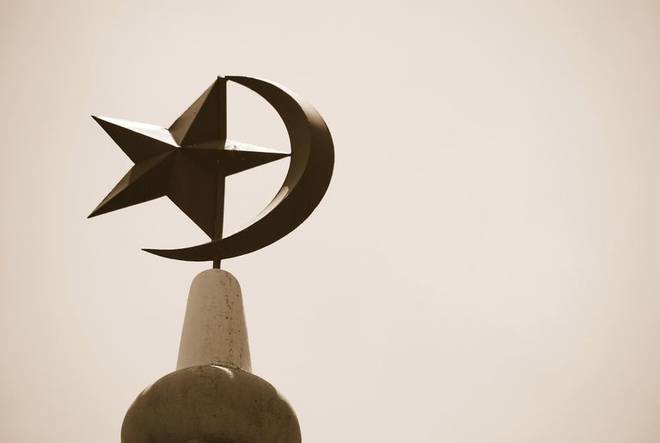Every Muslim child in Nigeria reading for WAEC Islamic Studies may have read textbooks written by Alhaji Dr. Sheikh Ahmed Lemu and his wife, late Hajiya B. Aisha Lemu (whose obituary was carried on this page last year) and published by Islamic Education Trust (IET) based in Minna, Niger State. Recently, the organisation celebrated 50 years of existence. I asked the scion of that scholarly family, Muhammad Nuruddeen Lemu ([email protected]), to tell us the IET Story:
Thursday November 16th 1969, a young Muslim couple and their friend were discussing the challenges facing the Muslim community with regard to the education and development of Muslims in Nigeria. As the trio were talking about this, the young lady asked, ‘Why don’t we establish our own organisation and do the things we are urging others to do?’ Their friend replied, ‘Why not?’ The man asked, ‘When?’ And their friend replied ‘Now!’
The assassination in January 1966 of the Premier of Northern Region and Sardauna of Sokoto, Sir Ahmadu Bello, had left a vacuum in the Muslim leadership, and it appeared that the educational reforms he had planned to initiate, such as bringing Qur’anic schools into mainstream education, had come to a halt.
So came to life the idea which gave birth to an institution whose impact would reach far into the succeeding decades and well beyond the borders of Nigeria – the Islamic Education Trust, IET. The three founding trustees were Alhaji Dr. Sheikh Ahmed Lemu, Hajiya B. Aisha Lemu and Alhaji Sani Ashafa Suleiman. IET’s aim was to educate Muslims and build their capacity to contribute positively to the development of their communities.
Its first office was the kitchen store in Hajiya Aisha’s house. It was agreed that Alhaji Sheikh would be the president, Alhaji Sani the secretary and Hajiya Aisha the financial secretary. The three contributed funds to employ their first member of staff. From these humble beginnings, IET grew into the global organisation it is today.
One of their first tasks was to ensure that all secondary schools – both government and missionary – in the then North-Western State had qualified teachers for Islamic Religious Knowledge (IRK). At that time, as there were no qualified IRK teachers, many parents refused to send their children to school out of concern that their children’s religious beliefs would be compromised. The resultant effect was an extremely high number of out-of-school Muslim children.
To solve this problem, IET interviewed, trained and employed teachers who were then sent to various secondary schools within the region to teach IRK. It was hoped that with the proper teaching of Islam in schools, students would graduate with an authentic understanding of Islam and skills needed to engage positively with their environments.
Sheikh Lemu, late Dr. AbdurRahman Doi and late Justice Bashir Sambo wrote the first sets of textbooks used for teaching IRK to secondary school students then. The Sheikh and late Alhaji Muhammad Wali, one of the first employees of IET, also jointly wrote a book about Islam in Hausa, which served as a resource material to enlighten non-Muslims about Islam.
These activities were largely funded by the founding trustees and were carried out quietly through its flagship programme, the “Da’wah College”. However, following the success recorded in the activities within a short time, it was able to get the support and blessings of individuals including then Sultan of Sokoto, Alhaji Sir Abubakar III, and then Military Governor of North-Western State, Alhaji Usman Faruk.
Other programmes of the IET over the years have included Annual Seminars for Muslim undergraduates, women’s classes, on-campus training, da’wah mobile corps and a weekend school.
As IET grew, certain changes were made such as moving its headquarters from Sokoto to Minna in 1976 when Sheikh Lemu became Grand Qadi, Shari’ah Court of Appeal of the newly-created Niger State. It also became necessary to set up departments, zonal coordinators and branches to handle its expanding activities.
It established branches in Sokoto, Yola, Lagos and Abuja and appointed coordinators in the six geo-political zones. It has five departments: General Administration and Resource Management; Awqaf and Investments Department; Human Welfare Department; Education Department (which manages IET schools – New Horizons Nursery and Primary School Minna, New Horizons College Minna and Sunrise International School Abuja); and the Da’wah Institute of Nigeria (DIN). The affairs of the IET are currently under the custodianship of its board of trustees.
A core purpose of establishing the IET rests with the DIN. To meet its primary objectives, DIN develops resources and methods for the effective dissemination and application of the correct message of Islam. The basic aims have been extended to include public enlightenment, capacity-building of other Islamic organisations and individuals involved in da’wah, interfaith bridge-building for peaceful coexistence with people of other faiths, striving for greater social justice, promoting faith-based critical thinking, preventing violent extremism, and promoting the rights of women in Islam.
IET’s founding trustees formed partnerships with like-minded organisations such as Aisha Lemu Learning Initiative (ALLI) that provides academic and vocational skills training for disadvantaged children; Da’wah Coordination Council of Nigeria (DCCN); Federation of Muslim Women Associations in Nigeria (FOMWAN); Association of Model Islamic Schools (AMIS); and Development Initiative of West Africa (DIWA), involved in community development, welfare and peace-building in West African.
The impact of the IET can be traced to the clear understanding that it is a trust that must be preserved and passed on to future generations; hence the organization prioritises training, capacity building and welfare, succession planning and investment in staff. And as we move into the future, the IET will be increasing its use of new technologies to achieve its goals.
The IET hopes to continue building upon the progress it has made so far by remaining committed to its values of God-consciousness, learning, growth, consultation, collaboration, and seeking the common good of all. It plans to continue to CONNECT, INFORM, INSPIRE and SUSTAIN; and continuously strive to put Allah first in everything.

 Join Daily Trust WhatsApp Community For Quick Access To News and Happenings Around You.
Join Daily Trust WhatsApp Community For Quick Access To News and Happenings Around You.


